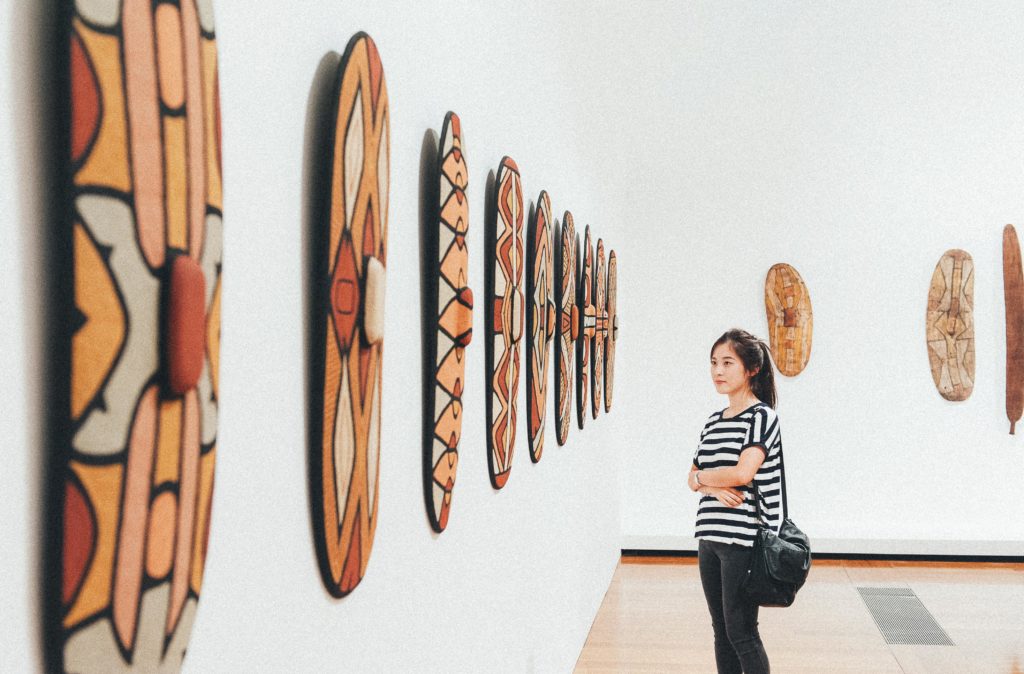We’ve all been there: you’re in a group of friends, someone tells a joke and you’re seemingly the only one who doesn’t get it. While you might laugh along to be polite, nothing is quite as good as being in on the joke with everyone else.
As an international student, moments like these are totally normal – after all, Australian humour takes some getting used to.
In this guide, we introduce you to the quirky world of Aussie humour – a unique strain of humour (combined with the accent and the Australian slang) that has bewildered visitors for decades. With these insights, you’ll not only understand the Australian sense of humour but maybe feel comfortable enough to use it yourself!
The staples of Australian humour
Australian banter
“Nice haircut, did you get run over by a lawnmower?” – An Australian talking to a friend.
Australian banter is more or less a lighthearted teasing battle. Friends will go back and forth, making jokes to one another, often at the other person’s expense.
As an example, one friend might make a joke about one of their friend’s bad habits like being late or messy. The other friend might reply with a comeback about the first speaker’s outfit or physical appearance.
While it may sound harsh, Aussie banter is only intended to be light-hearted and fun; the goal is never to hurt each other’s feelings.
In Australian culture, making jokes like these is a way of building rapport. To Australians, being comfortable enough with someone to make a joke at their expense is a sign of mutual respect, equality and closeness.
For examples, check out:
Hamish and Andy (Comedians)
Lano and Woodley (Comedians)
Australian sarcasm
In essence, sarcasm is when you say one thing but you mean another; it’s irony usually used for comedic purposes.
Australian sarcasm can be hard to detect; sometimes it will be said with such a straight face that it goes completely unnoticed. If you’re ever stuck, pay close attention to context. Think about what you know about the speaker’s personality, watch their body language (e.g. if they’re smiling), and listen to their tone of voice.
For examples, check out:
Charlie Pickering (Comedian)
Dave Hughes (Comedian)
John Safran VS God (TV Show)
Australian self-deprecation
Self-deprecation – otherwise known as making fun of yourself – is another staple of Australian humour. They’ll call themselves all kinds of names, tell embarrassing stories and even act out impressions of their own worst selves. Australians are wary of ‘showing off’ and so this self-deprecation is a tactic to prove that they don’t think too much of themselves.
Don’t be fooled, though. Just because they tend to mock themselves doesn’t mean that Australians lack confidence. It’s simply a way of letting people know that they don’t think they’re extra special and that everyone is on the same level.
For examples, check out:
Josh Thomas (Comedian)
Michael Hing (Comedian)
Australian dark humour
Australians joke about all kinds of things that might be considered in bad taste in other countries, including death, illness, accidents, sex, bodily functions – the list goes on.
If you’re ever feeling confronted by Aussie dark humour, remember that their intention isn’t to offend you. More often than not, it’s an effort to relieve the tension surrounding a subject and to look on the brighter side of things.
For examples, check out:
Please Like Me (TV show)
Judith Lucy (Comedian)
Two Hands (Movie)
Australian anti-authoritarianism
Australians have no qualms about making fun of politicians, royalty, moguls or celebrities. While it may seem disrespectful, it’s really another way that they bolster the ideal that everyone is equal – a concept Australians hold very dear. No one is allowed to escape derision in Australia, no matter who they are.
For examples, check out:
The Feed (TV show)
The Chaser’s War on Everything (TV show)
How to embrace Australian humour as an international student
When it comes to embracing – and maybe even adopting – Aussie humour, there are a few things to keep in mind.
Firstly, you’ll want to make sure you improve your English language skills as much as possible. We also recommend doing your research on Australian slang as many of these words and phrases are used by locals when they are being funny. A strong grasp of the English language – and the special terms used by Aussies – will help you better understand the context of certain jokes.
One of the best places to seek English language support is through your education provider. For example, Western Sydney University has English Conversation Groups, which are student-run sessions that allow non-native English speakers to grow their skills and build their confidence.
It’s also important to be patient with yourself. The Australian sense of humour is extremely unique and, therefore, is probably very different to what you’re used to. Don’t get frustrated if you don’t understand the jokes right away or if certain comments confuse you.
However, remember to have an open mind. One of the reasons you’ve come to Australia is to experience the culture – and humour is part of it. Be open and curious; if you feel comfortable enough, ask questions about the jokes or comments you hear. This is one of the easiest ways to gain insight into what Australians find funny.
Ranked in the top 2 per cent of universities worldwide, Western Sydney University is a top choice for international students. From a wide variety of courses to unparalleled student support – including English language support – discover everything that Western Sydney University has to offer.






